The Future of Family Planning
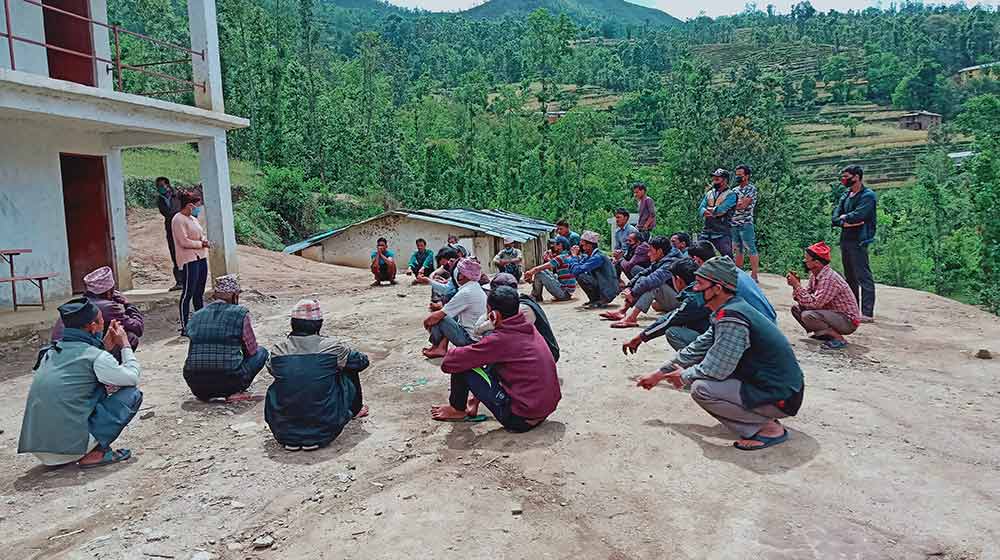
Even before the COVID-19 pandemic, 218 million women didn’t have access to contraception. But because of coronavirus, an additional 12 million women have lost access to family planning.
Right now, every single one of these women must have the lifesaving care and supplies that are their right.
Throughout the pandemic, communities around the world have adapted to lockdown restrictions and supply shortages so women can continue to determine their futures. And, these innovations could prove key to ending the unmet need for family planning, even after the masks have come off.
This is the future of family planning:
Self-Injectable Contraceptives
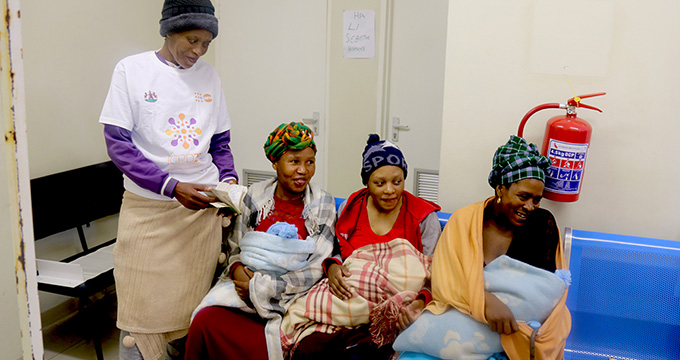
In rural areas where women have limited access to health care, self-injectable contraceptives allow women to literally take their health into their own hands.
Women in Lesotho have been using self-injectable contraceptives to protect themselves from unintended pregnancy and unsafe abortion. At least 1 in 10 maternal deaths is caused by unsafe abortion and the practice is the leading cause of hospitalization for women and girls in Lesotho. Demand for self-injectable contraceptives originally increased when climate disasters in Lesotho made supporting large families difficult. But during the COVID-19 pandemic, self-injectable contraceptives have allowed women to continue planning their lives and families from home. They don’t have to worry about contracting the virus from a health facility. In the future, self-injectable contraceptives will give rural women the freedom to prevent unintended pregnancy from home.
Reaching Women Where They Are
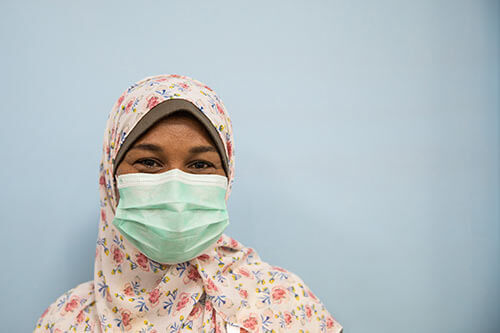
When Egypt went into lockdown, Nashwa, an outreach worker at a health clinic, began calling patients to assure them that they could still access family planning. In one call to a patient, she said, “You haven’t been coming and I know it is out of your hands because of the current circumstances. I am calling you to make things easier for you.” By sharing information directly and building relationships within their communities, health care workers can ensure that their patients know how to get the care they need.
Similarly, in Nepal, couples in mandatory quarantine could receive family planning from traveling midwives. Kabita is one such midwife who regularly scales mountains and treks across rivers to reach her patients. During one visit to a quarantine center, all four women opted to receive long-acting contraception to protect themselves from unintended pregnancy for the duration of the pandemic.
Health care workers like Nashwa and Kabita reach women where they are and ensure that, no matter what, their patients have access to lifesaving family planning. Even after the COVID-19 pandemic, millions of women will not have access to family planning due to stigma, living in rural or isolated areas, supply shortages, opposition from their partners, and more. These are the most vulnerable women. Meeting them where they are may be the only way to reach them with them with lifesaving care.
Raising Awareness through TV Shows

To educate young people and families on the importance of comprehensive sexuality education and access to reproductive health services, the Government of Honduras and UNFPA produced a TV drama series that follows teenage girls as they navigate gender inequality, gender-based violence, and pregnancy. The rate of teenage pregnancy in Honduras is twice as high as the global average. This is partially because sexual violence is so prevalent. One study found that about 1 in 6 girls who experienced sexual violence in Honduras became pregnant.
The TV series aims to educate girls about their right to sexual and reproductive health care. They learn how to talk to their parents about their health and about where they can go to access services like family planning or psychosocial counseling for survivors of violence. Public health-oriented TV shows are an effective way to disseminate vital information and reduce stigma at the same time. In the post-pandemic future, TV shows and other media can continue to normalize family planning.
App-Based Birth Control
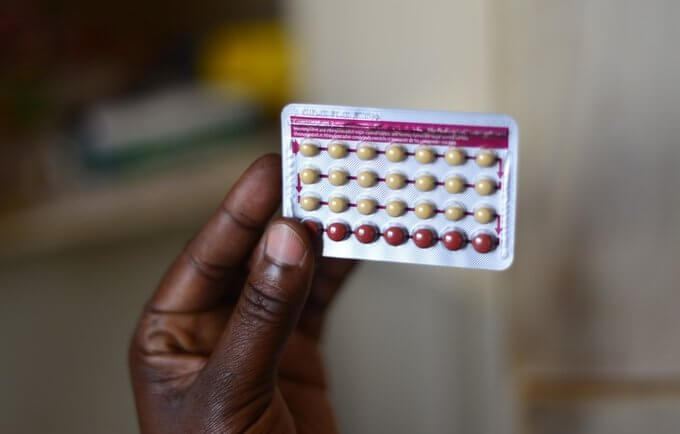
In the first five months of 2020, there was a 50% drop in women accessing family planning in Eswatini. To ensure women continued to have access to family planning, UNFPA began a text message program. Every month, participants receive a text reminding them to refill their birth control.
Nolwazi is one woman who participated in the program. She felt encouraged that she could visit any clinic during COVID-19 for contraception. Text message reminders reach women directly and reduce the chance that women will lose access to contraception.
In Uganda, 1 in 5 women wish to prevent pregnancy but are not using contraception. To change this, UNFPA has partnered with SafeBoda, a ride-sharing and delivery service. Women and young people can quickly and discretely order condoms, birth control, HIV tests, and even mama kits straight to their doors. Betty, a community health worker, supplements the delivery service with information on sexual and reproductive health. The program comes at a time when COVID-19-related shortages of these essential supplies have put women’s lives on the line. Even after the pandemic, app-based programs will make it easier for women and young people to get the care they need.
Family Planning by Drone
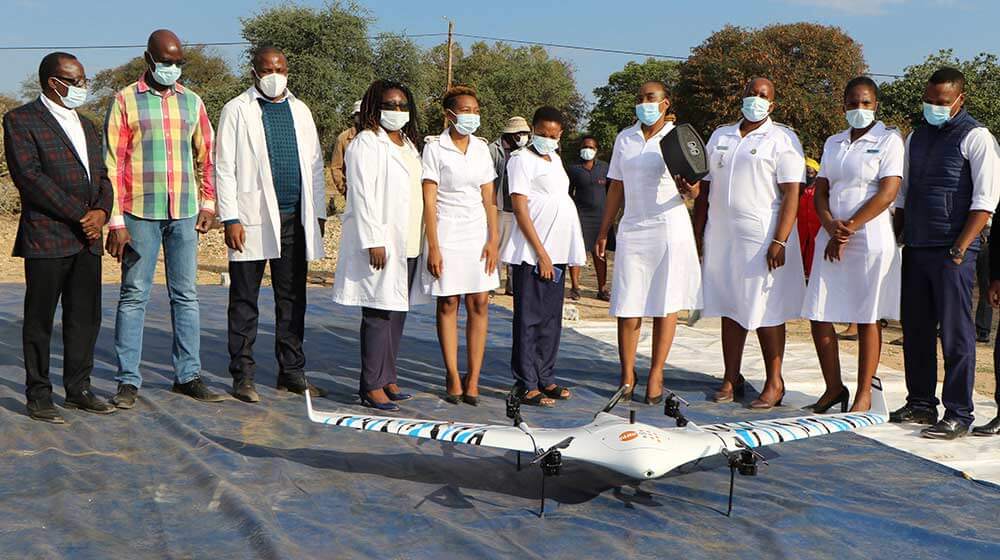
In Botswana and Ghana, UNFPA is piloting a program to deliver care to hard-to-reach areas by drone. The drones can carry just under 5 pounds worth of condoms, HIV tests, blood for transfusions, and more. And, they do so quickly. In some cases, drones cut the time it would take to deliver these supplies from several days to 30 minutes. In an emergency, this can mean the difference between life and death. The program is still being tested, but in the future, family planning could literally drop out of the sky.
We’ve made a ton of progress toward giving every woman the care and support she needs to decide if, when, and with whom she would like to have children. The COVID-19 pandemic was a major setback, but around the world, communities found solutions. There are even more ways than ever before to reach women with family planning. And, who knows? Maybe in the future, women will be able to order family planning to their doors by drone.
-Dana Kirkegaard